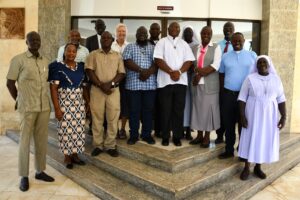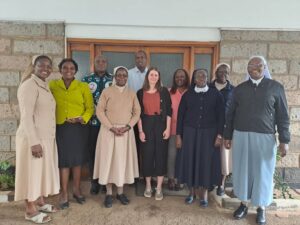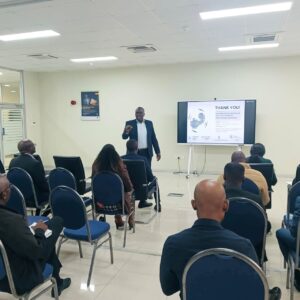SYNOD-SECAM: African Relational Anthropology Visible in Continental Synod: Undersecretary on the Uniqueness of the Assembly
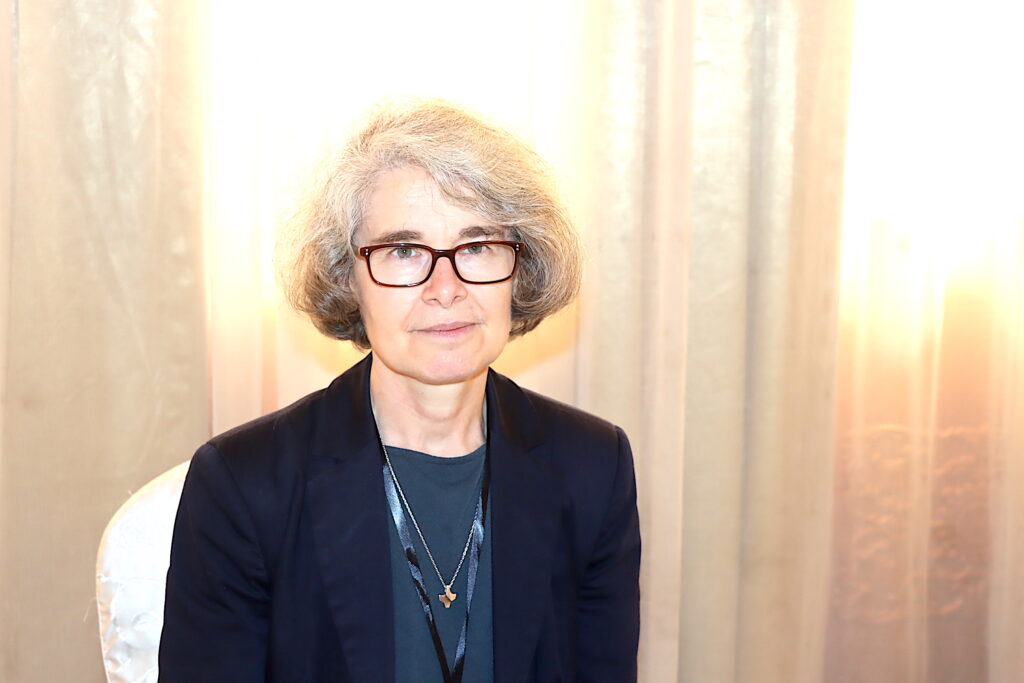
Sr. Nathalie Becquart, XMCJ Undersecretary for the Synod of Bishops. Credit AMECEA Online
Sr. Jecinter Antoinette Okoth, FSSA
The Under-Secretary of the Synod of Bishops has expressed the uniqueness of the just concluded continental assembly in Addis Ababa, Ethiopia, noting that the African anthropology was visible during the week-long meeting.
Sharing with AMECEA Online Sunday, March 5, Sr. Nathalie Becquart the first woman to serve as Under-Secretary for the General Secretariat of the Synod said, “Here in Africa there is the sense that people live the faith and encounter others not only with the brain and mind but with all the feelings.”
She continued, “This is something very unique from Africa which I think is also coming from relational anthropology: the feeling that I cannot exist without “we” and I am because you are.”
While calling upon all Africans to share the same spirit with people of God from many parts of the world “especially where there is that individualistic approach,” the member of Xavière Missionaries of Christ Jesus (XMCJ) narrated that the sense of participation experienced during the continental synod meeting is a special gift from Africa.
She revealed that after attending different continental synod assemblies including the continent of Oceania and those in Middle East, people have distinctive gifts as others “have the importance essence of silence.”
During the Sunday interview, the French nun who is also the first woman to have a right to vote in any upcoming meeting of bishops, appreciated that in Africa, the people of God have “the spirit of desire to continue with the synodal journey.”
“What strikes me is that for Africa when speaking about synodality almost everybody connects with the notion of the Church as the family of God which was an outcome of the synod in Africa,” the former director of French Catholic National Service for the Evangelization of Young People and for Vocations said adding that it was “Interesting to hear more about the connection between synodality and the traditional values of Africa: Solidarity, a sense of family, dialogue including palaver, Ubuntu and Ujamaa.”
After interaction with over 200 delegates who were from across the continent and other invited delegates from the Vatican, Sr. Becquart observed that even though the synod topic is common in all continents, “Here in Africa it is expressed from and within the reality of the African culture.”
Even if the seeds of synodality already exists in the continent Sr. Becquart said, “There are still weeds and obstacles in the synodal process hence a call to continue the journey of synodality and a moment to learn how to be synodal which should be the path to personal and communal conversation.”
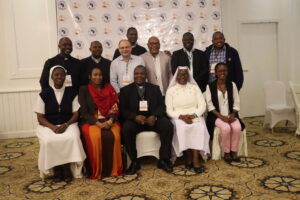
The assembly which comprised of young people, the laity, delegates from other faiths, religious men and women, clerics, bishops and Cardinals, the undersecretary said, was a good combination which gave space for all members of the Church and people of God to be heard, and also a sign of diversity in the Church.
Comparing the synodal process in Africa with the other continents she already visited, the Religious nun who served previously for 10 years in the French Episcopal Conference shared that, “In Africa we have experienced a spirit of spiritual conversation in a way of listening to each other through discussions and dialogue in small groups with the spirit of prayer and discernment,” besides, “There was Latin rite and Ethiopian rite which is a good sign of synodality that we not only have the Latin Church but also oriental Churches.”
“In Africa people did not only speak about the Church but also other issues of the continent including poverty, justice, care for creation, good governance which are the real in people’s lives,” she narrated.
The nun disclosed further “In Latin America, the synod was organized and discussed in regional assemblies before the final continental assembly,” (While) “In the Middle East there were Churches from seven rites which shows diversity of the Church.”
In conclusion, Sr. Becquart appreciated the opportunity to visit Africa and be part of the continental journey saying, “I am grateful for this experience. We came a delegation from the Vatican to listen and to be with the people and learn in the process.”
“I am very happy and touched with the conversations I heard from the young people, the laity, Religious, clergy, bishops and Cardinals. I have felt a great fraternity and it was a blessing to journey with Africa as this gives me the desire to come back and discover more about Africa,” she said.
